Seminar in Business Ethics: Reporting System Administration
VerifiedAdded on 2021/06/07
|30
|1133
|56
Report
AI Summary
This report examines internal communication mechanisms for reporting unethical behavior within an organization, focusing on Ethics & Compliance Officers (ECOs), ombudsmen, and assist lines. It details the roles and responsibilities of ECOs in managing internal reporting systems, including their characteristics and scope, and contrasts them with the role of an ombudsman in mediating and investigating employee concerns while guaranteeing anonymity. The report also explores assist lines, or ethics hotlines, as a method of obtaining information about potential ethical or illegal situations, including how they work and the types of inquiries they handle. Additionally, it discusses whistleblowing, including when it occurs, when it is appropriate, and the negative outcomes it can have on both the whistleblower and the organization. The report concludes by emphasizing the importance of carefully managing these internal reporting systems to prevent external whistleblowing and its associated ramifications. The report also highlights the importance of confidentiality and anonymity to encourage reporting and emphasizes four wrongdoing categories for colleges and universities: unethical financial abuse, unethical personal conduct, unethical treatment of college property, and unethical use of information technology.
1 out of 30
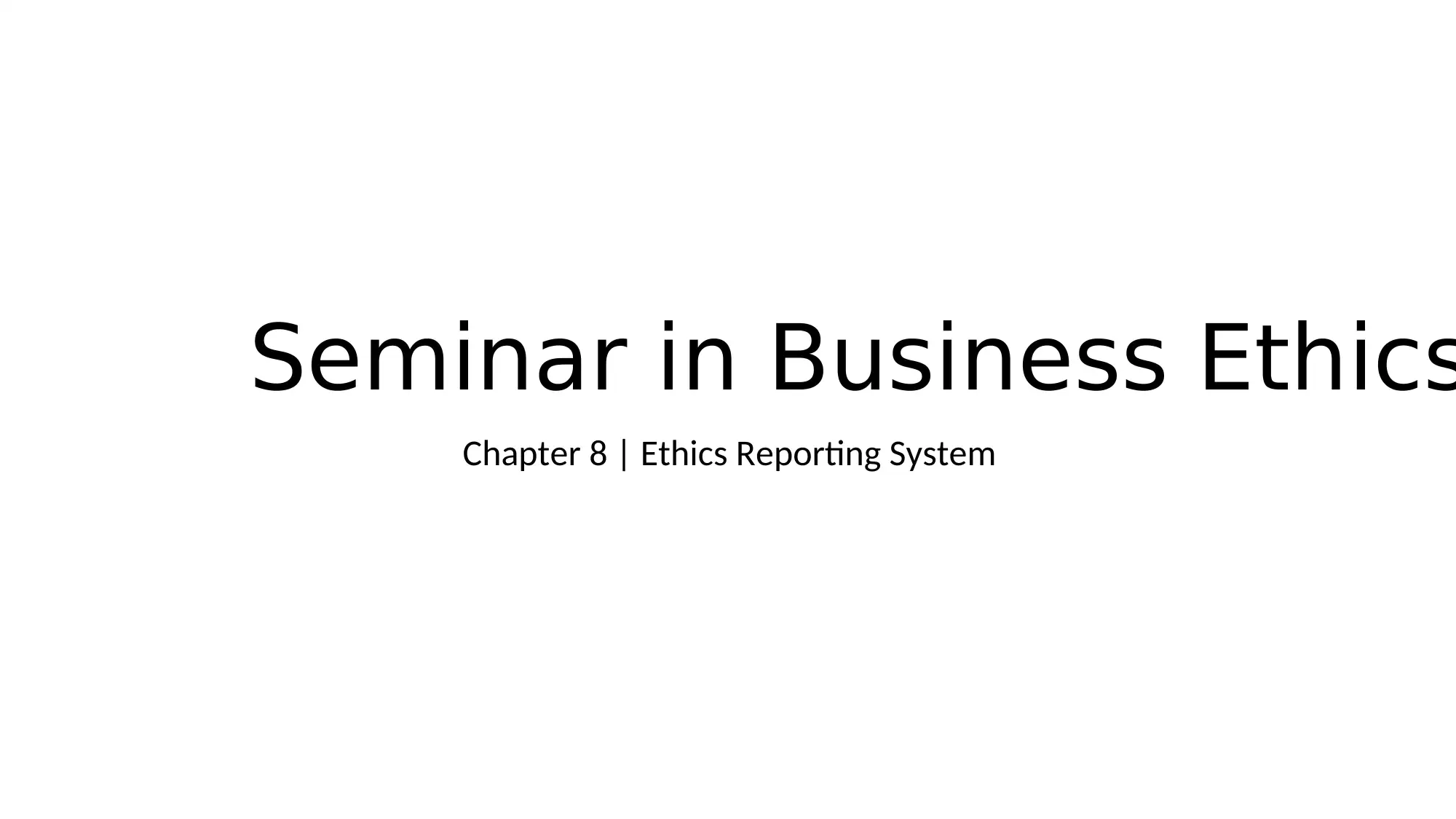
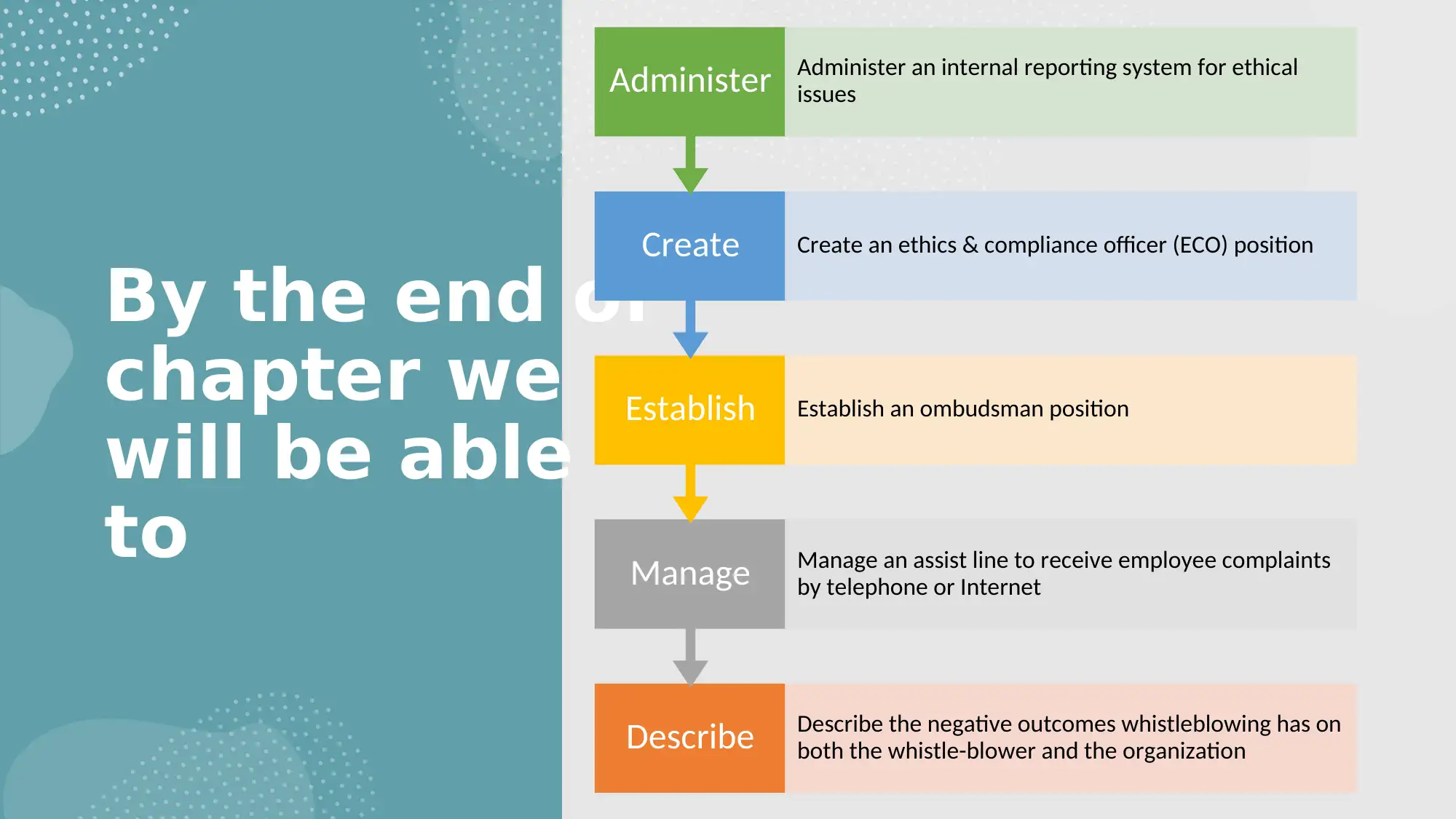
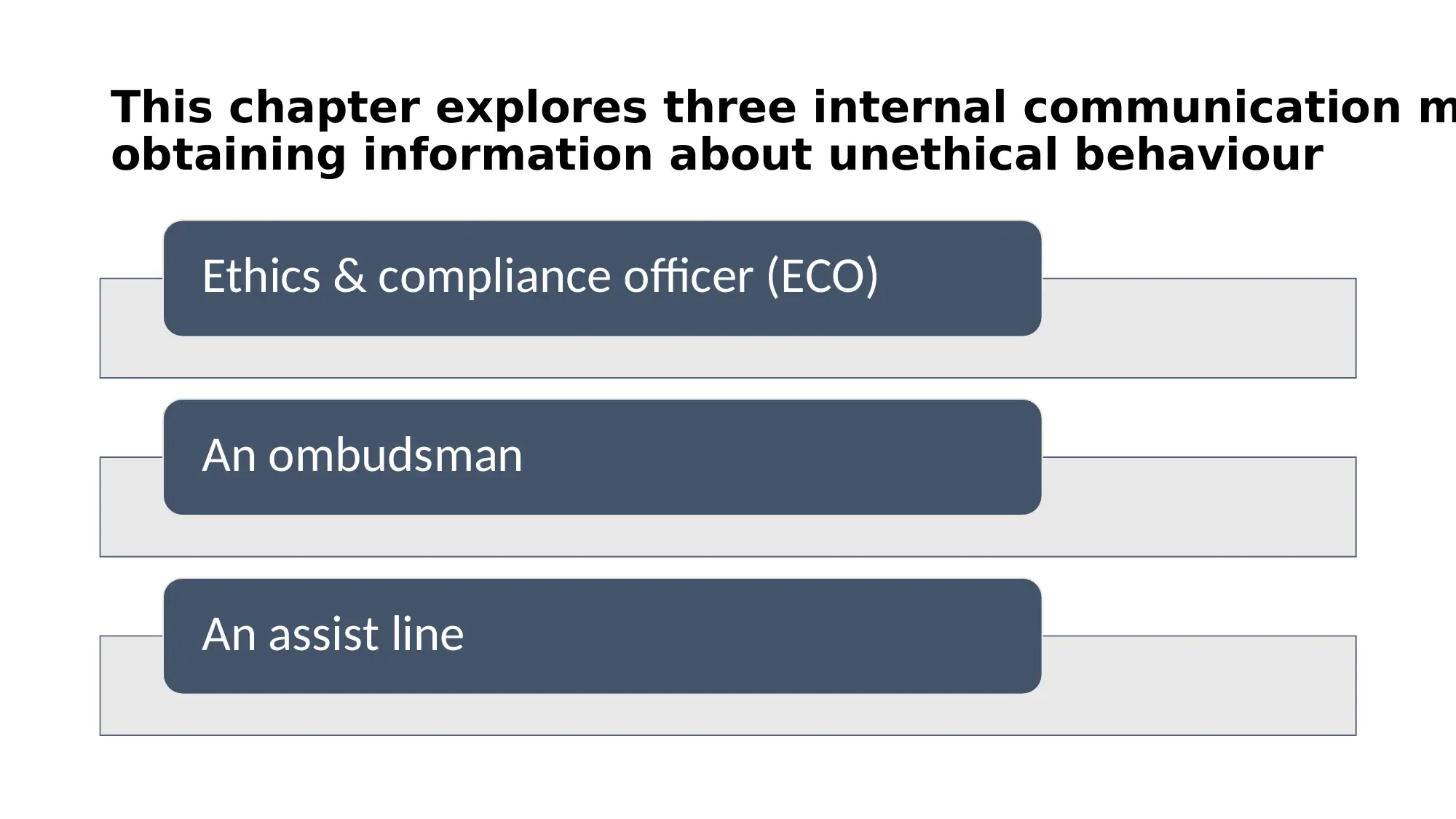

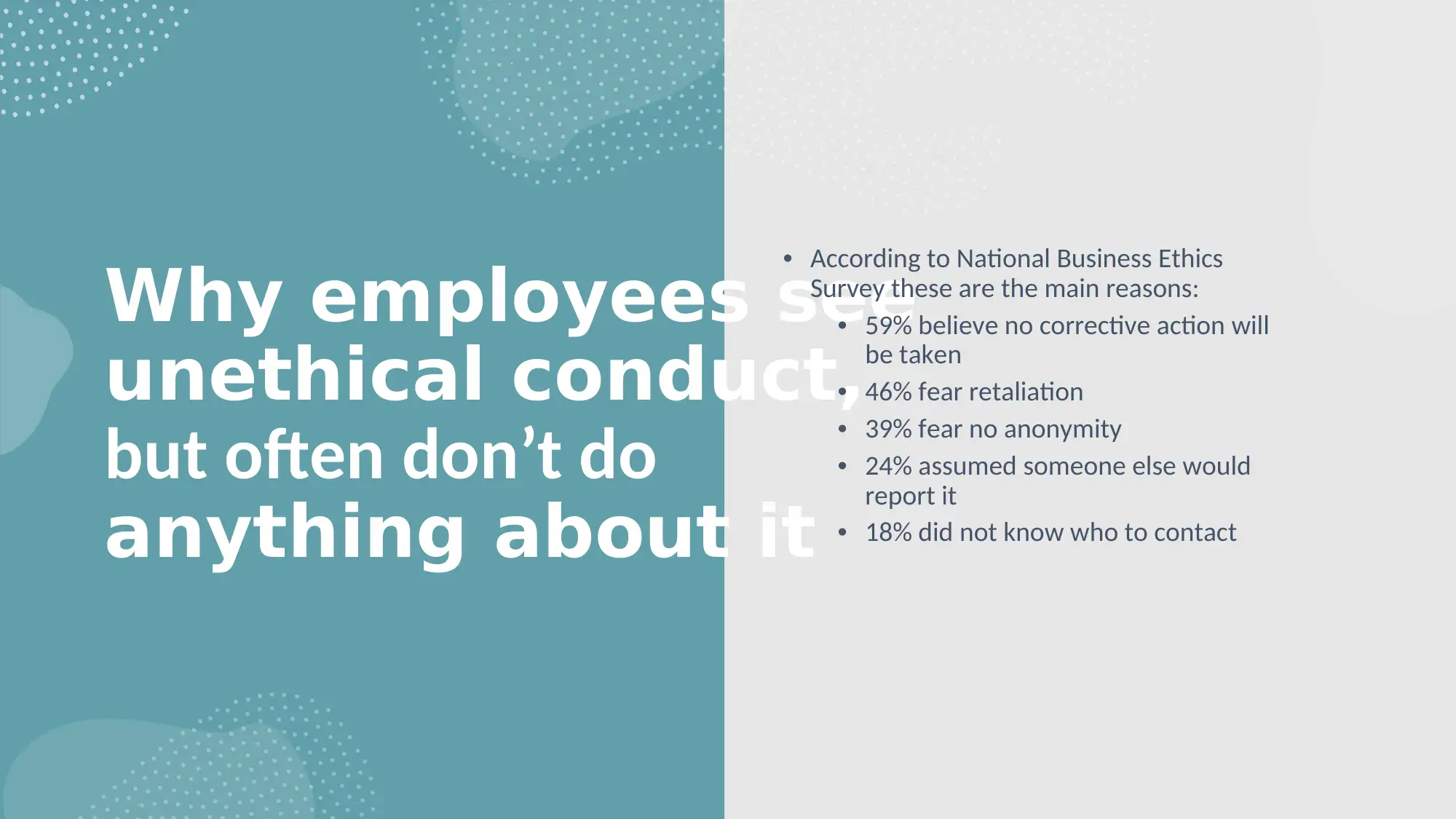
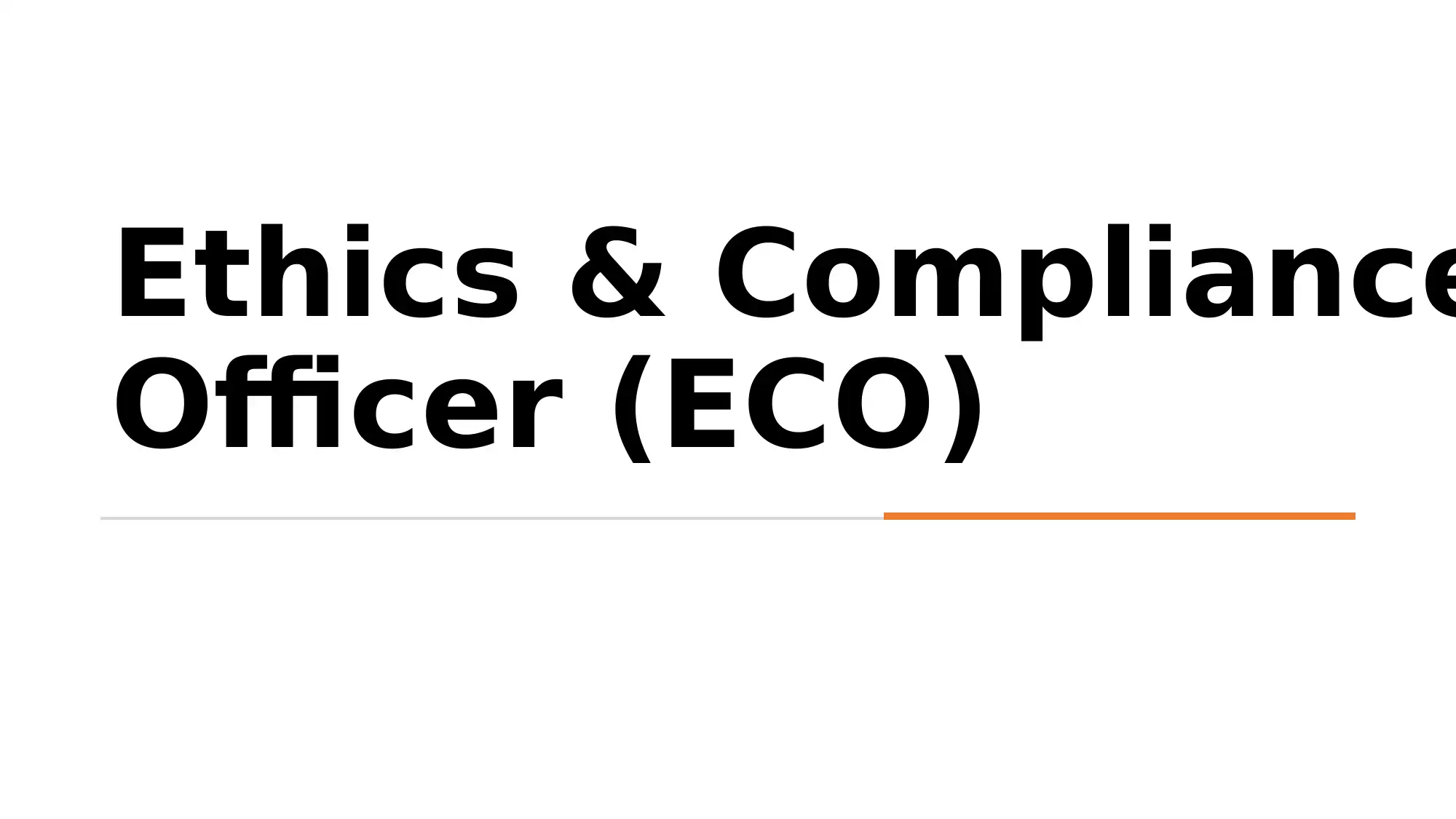
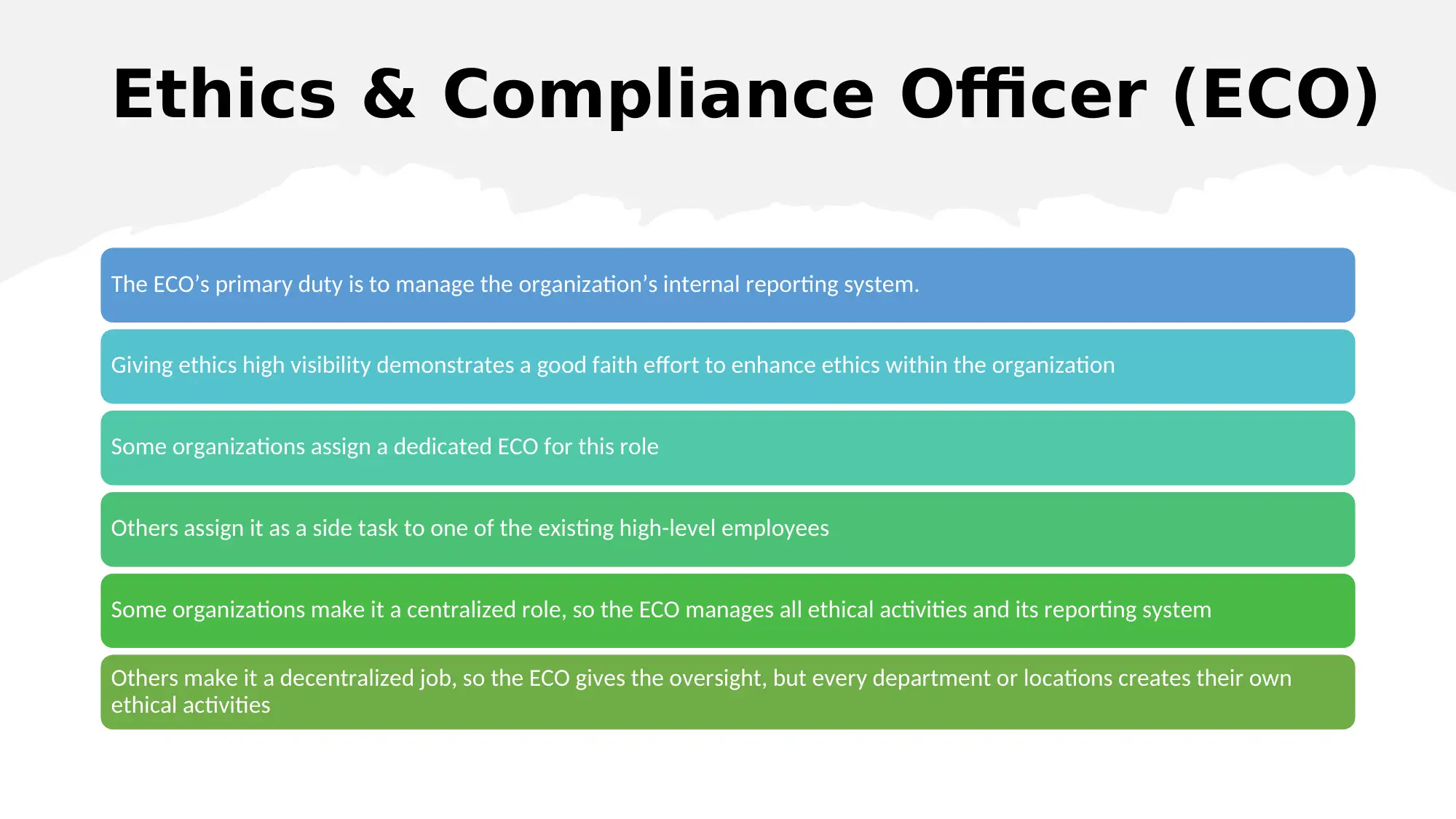
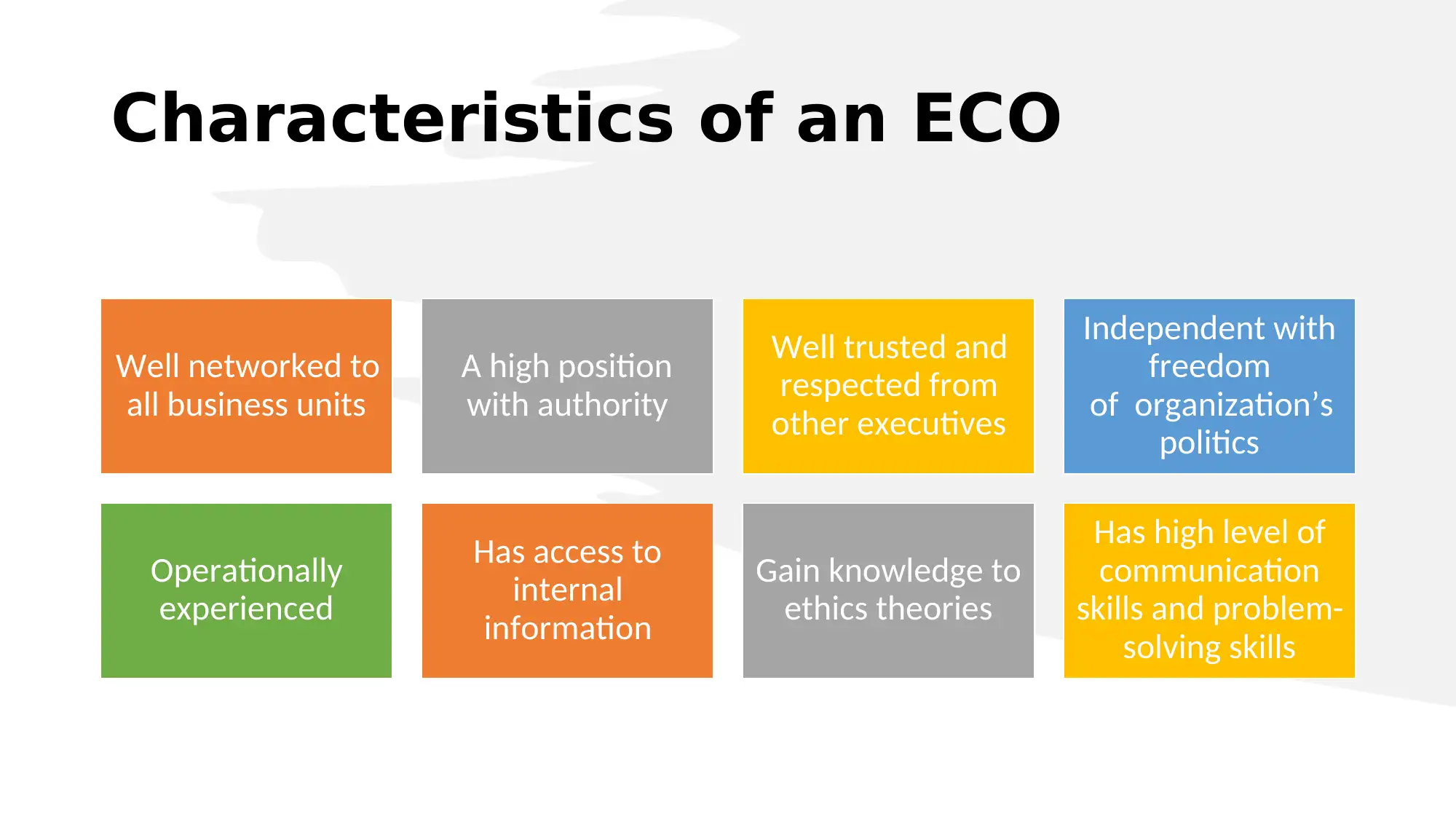
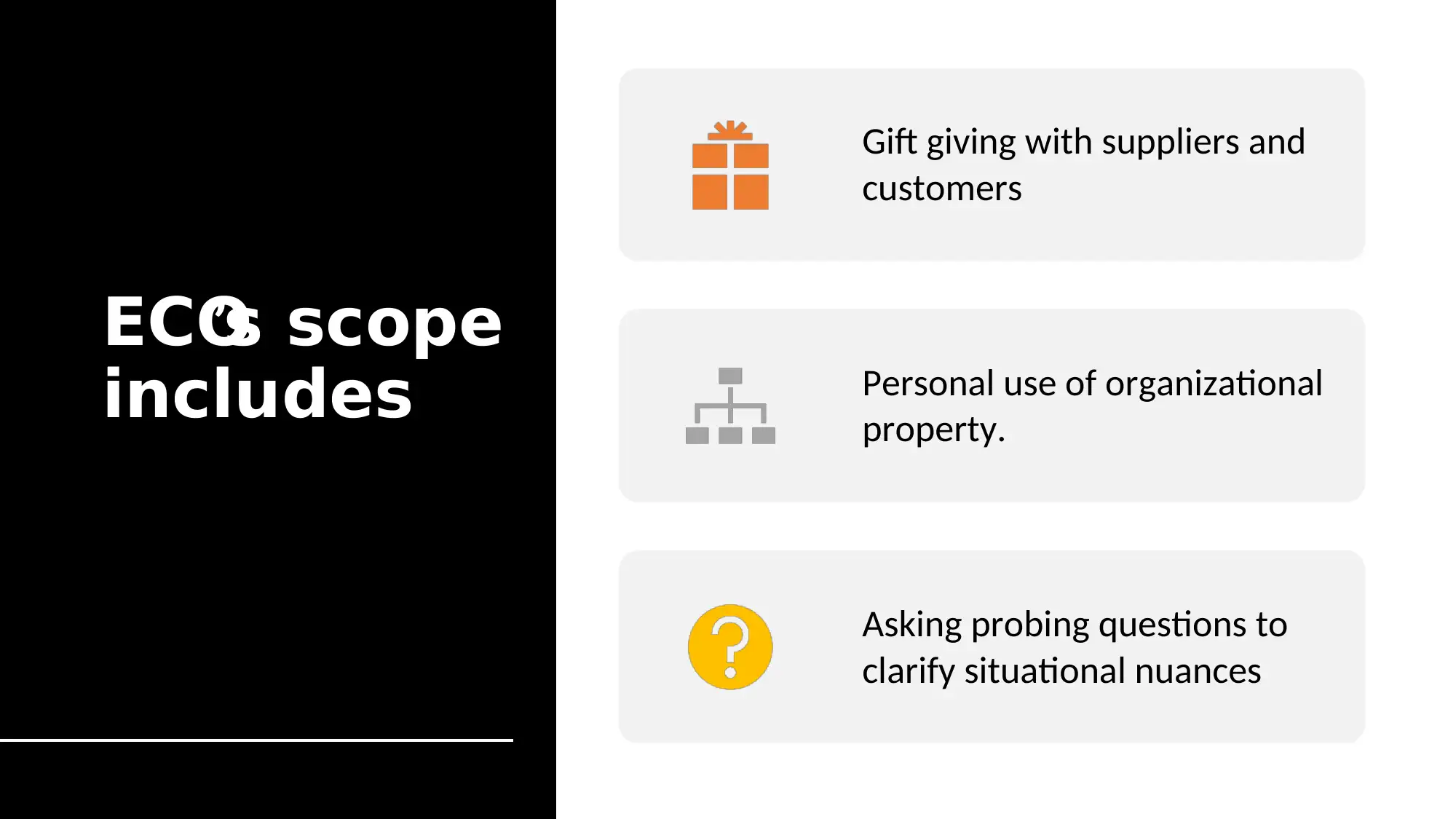
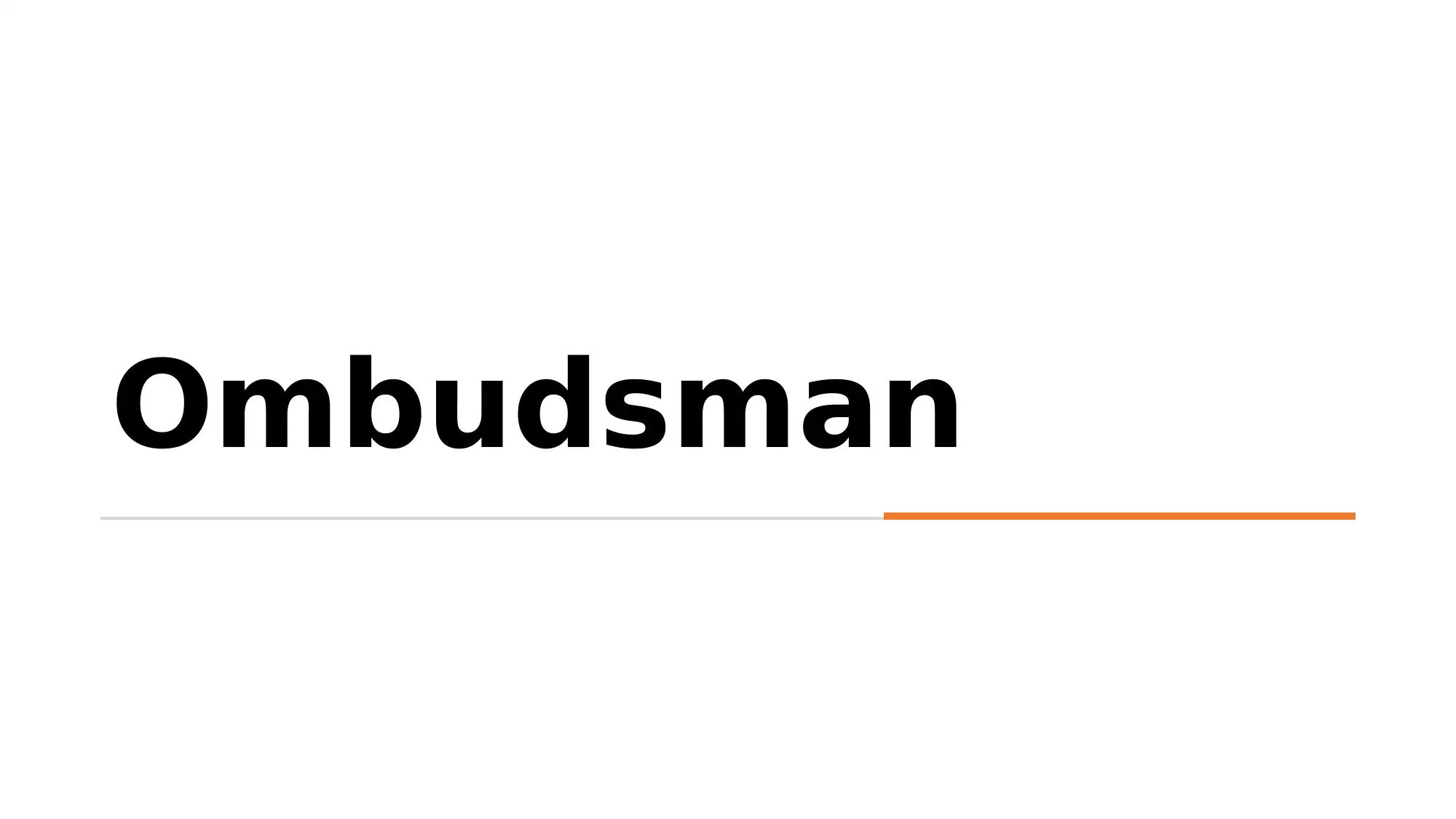
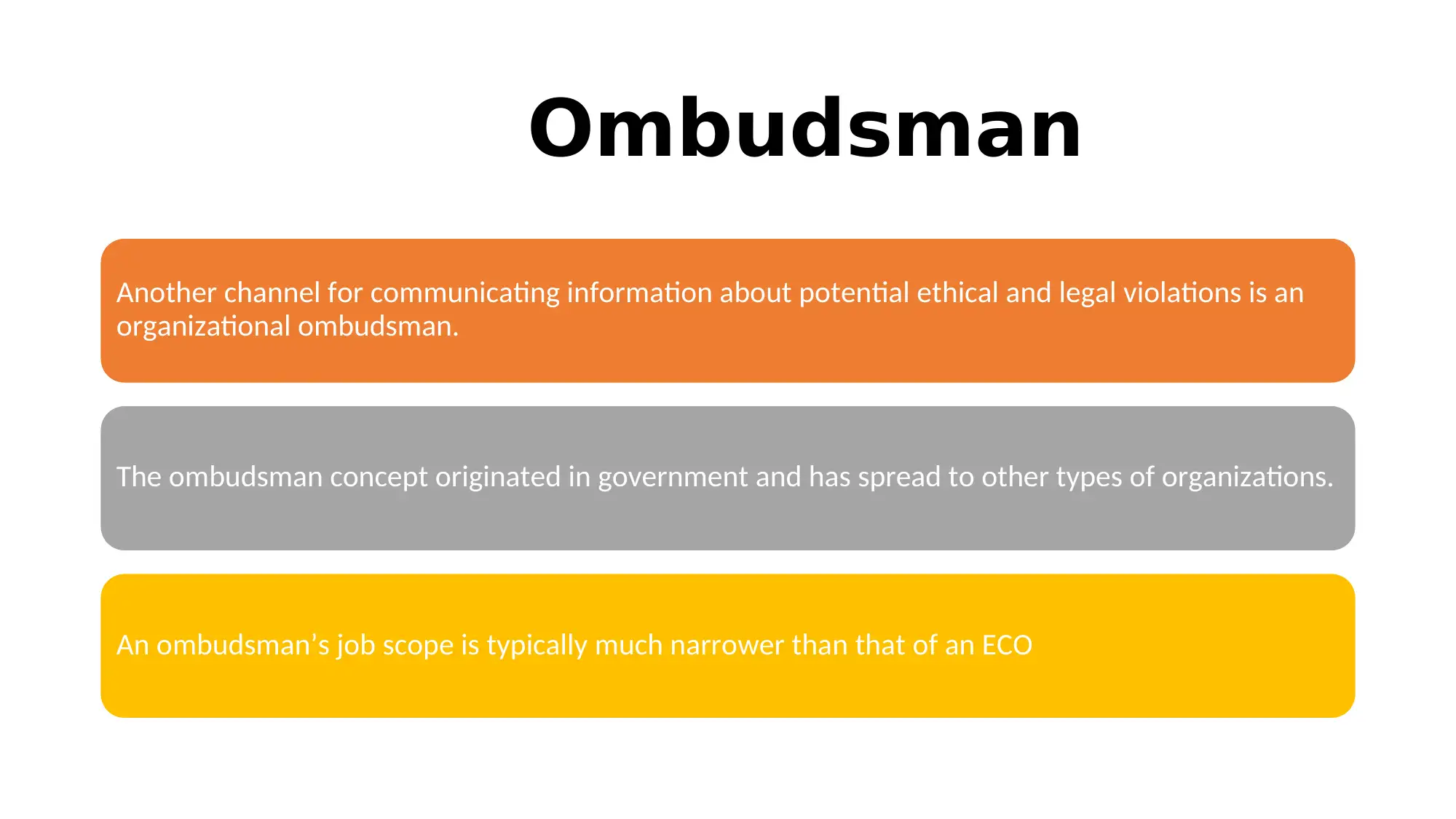
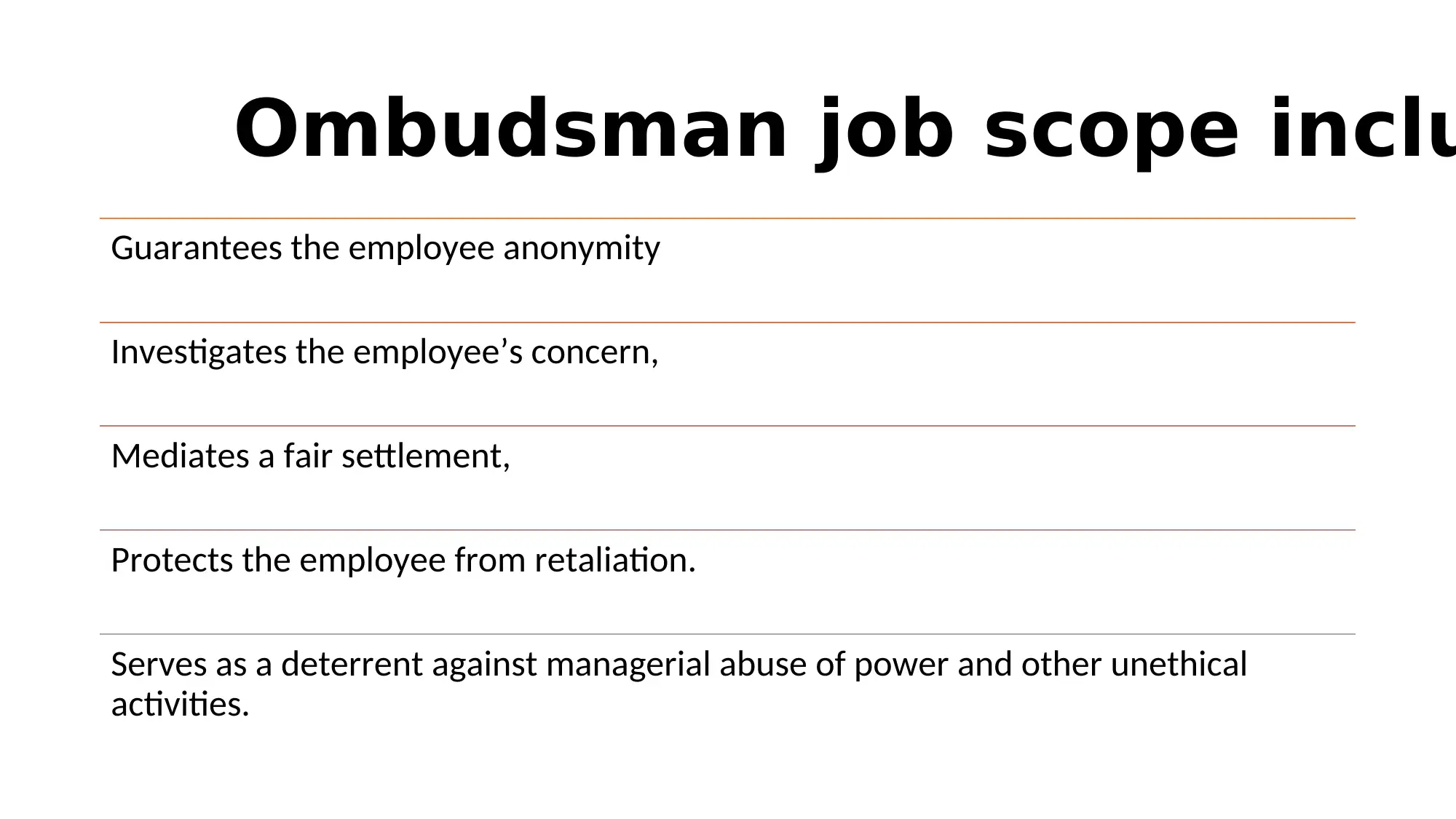
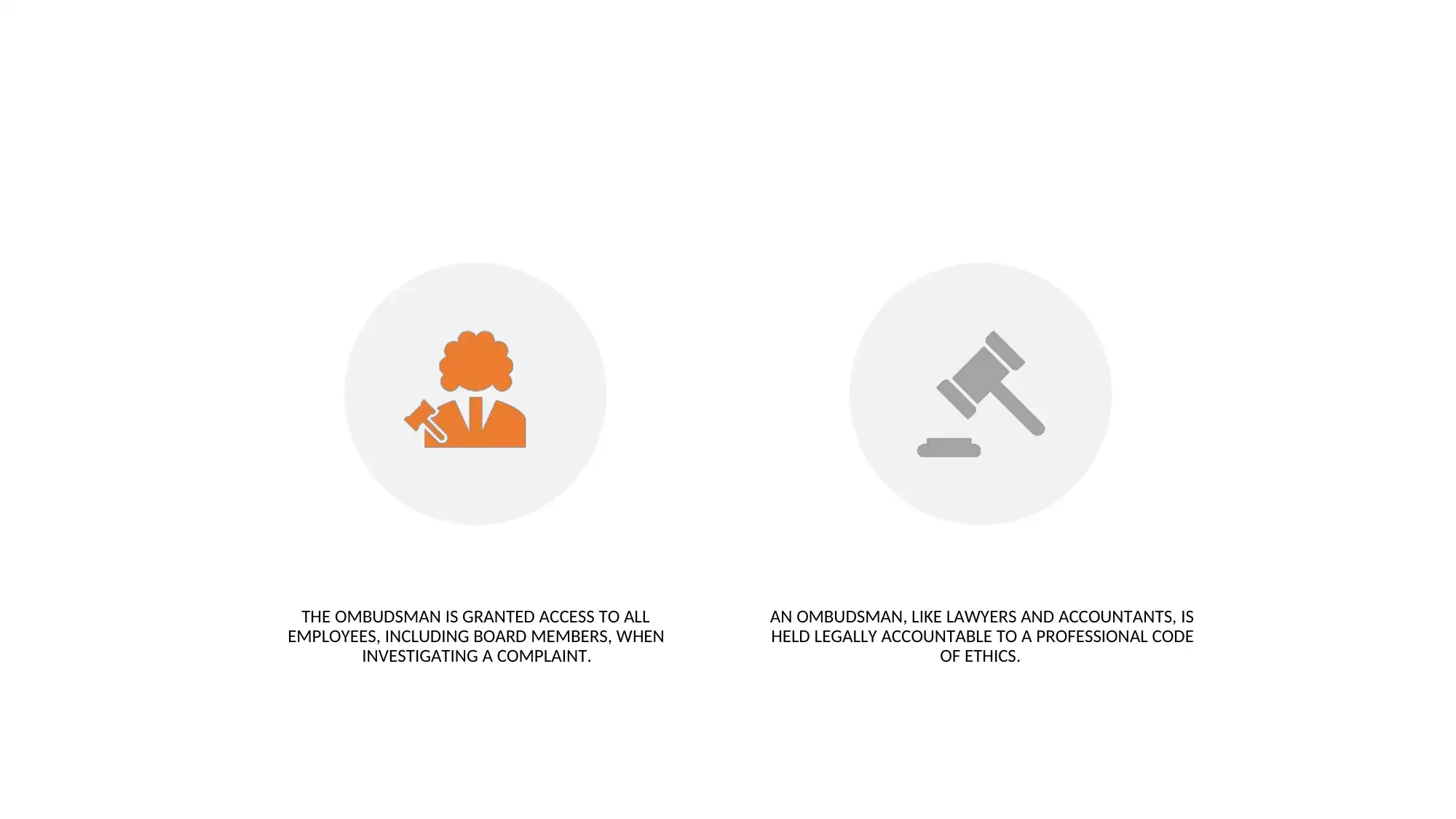
![[object Object]](/_next/static/media/star-bottom.7253800d.svg)